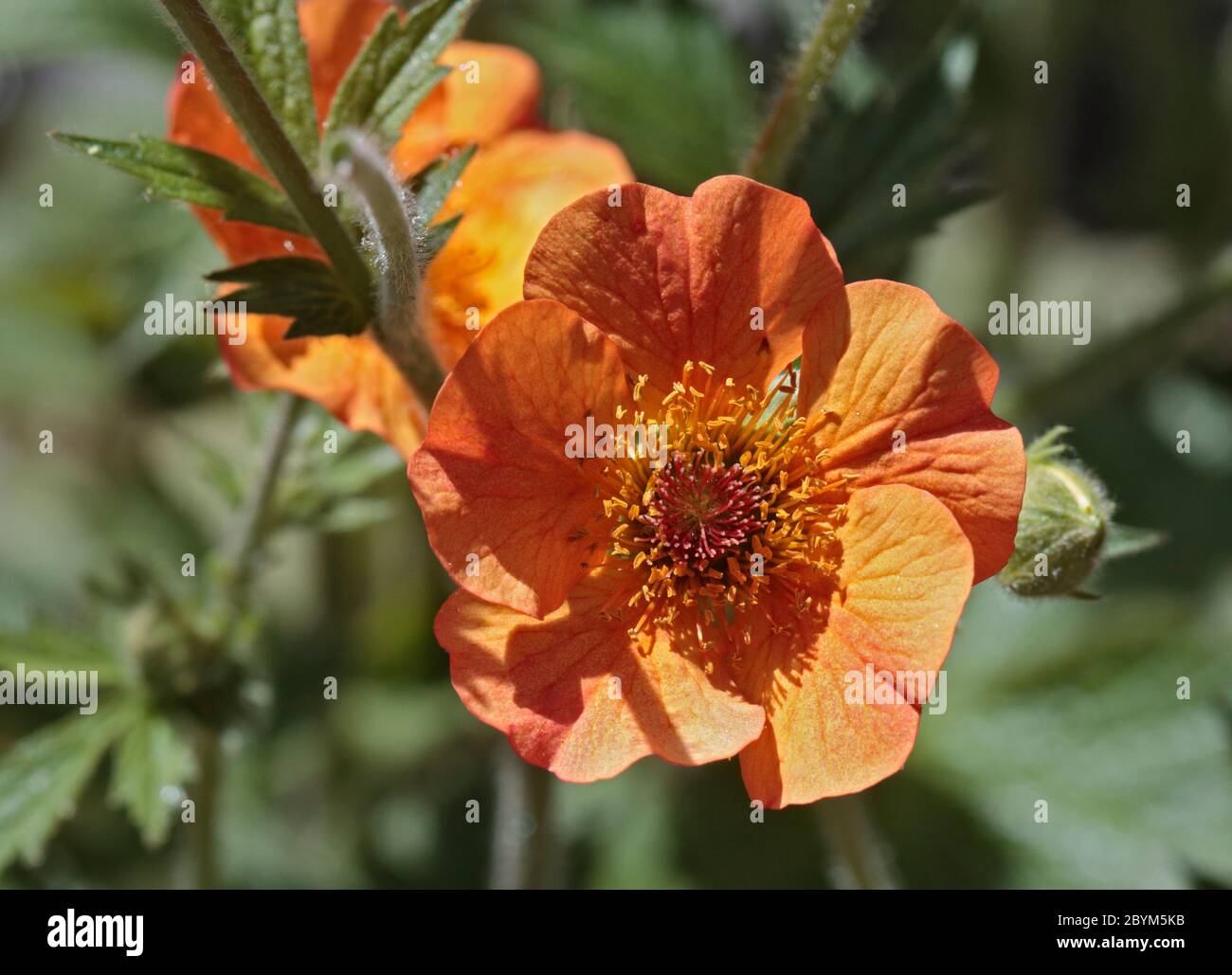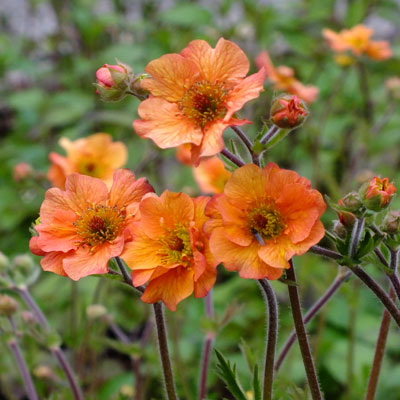

Geum rivale ‘Lemon Drops’ is very close to the wild type. From this base, the flowering stems rise up and bend over with drooping bell shaped lemon flowers. Geum rivale forms a dense spreading crown topped with a dome of hairy foliage. coccineum along with their hybrids and cultivars are reliable additions to the border. It is rare to see wood avens in the garden, but the related water avens, Geum rivale and the South American Geums chiloense and G. Geums have long been cultivated, Our native wood avens, Geum urbanum, being a stalwart of medieval herbalists. From a distance it reminds us somewhat of Geum ‘Hilltop Beacon’. The flowers can vary in shade from a rich orange back towards a more mellow shade. It is a sterile hybrid that will hold its zingy semi double orange flowers on stems up to 90cm tall and keep on producing them over an extended season. Introduced by Hardy’s in 2010, this Geum has built up a great reputation for reliability and impact. Classification of the Plant Kingdom ( some of it anyway !).They are designed to give you an overview of how different plants are related. Pages arranged along Taxonomic lines Each page covers one Order (the level above Family) and lists all of the Families within that Order and then the contained Genera within that. Or use the big button on the left to go to one page organised pictorially. I've split them into 4 letter based tabs to make browsing easier.

It’s always a good idea to do some research on a specific plant’s hardiness requirements and to provide appropriate care to ensure its survival.Botanical Style Photographs taken against a white background Browse these pages to easily see how different varieties differ from one another. Note that these ratings are only a general guide, and many factors can affect a plant’s hardiness, such as soil type, exposure to wind and sun, and moisture levels. H7: Plants that are not reliably hardy in the UK and should only be grown in a greenhouse or other protected environment. H6: Plants that can withstand temperatures as low as -20☌ and are suitable for outdoor cultivation in extremely cold regions, such as parts of northern Europe. H5: Plants that can withstand temperatures as low as -15☌ and are suitable for outdoor cultivation in areas with cold, harsh winters, such as parts of Scotland. H4: Plants that can withstand temperatures as low as -10☌ and are suitable for outdoor cultivation in most of the UK, except for areas with severe or prolonged winter weather. H3: Plants that can withstand temperatures as low as -5☌ and are suitable for outdoor cultivation throughout the UK H2: Plants that can withstand temperatures as low as 5☌ and are suitable for outdoor cultivation in sheltered or mild parts of the UK. H1: Plants that can withstand temperatures as low as 10☌ and are suitable for outdoor cultivation throughout most of the UK. Pruning back stems and foliage can also help shape the plant and promote new growth. Pruning: Deadheading, or removing spent blooms, can help encourage more flowers and prevent the plant from going to seed too quickly. Use a natural mulch, such as shredded leaves, straw, or wood chips.

Mulching: Adding a layer of mulch around your perennial plants can help conserve moisture in the soil, regulate soil temperature, and suppress weed growth. Water deeply once a week, rather than shallowly every day, to encourage deep root growth. However, they still need to be watered regularly, especially during hot and dry weather. Watering: Perennial plants typically have deep roots, so they can tolerate periods of drought. You can amend the soil with compost or fertilizer to improve its quality. Make sure the soil is well-draining and rich in nutrients. Soil: Good soil is essential for the health of your perennial plants.
#Orange geum totally tangerine full#
Some perennials, however, prefer partial shade or even full shade, so make sure to research the specific light requirements for each of your plants. Sunlight: Most perennial plants prefer full sun, which means at least six hours of direct sunlight per day. Here are some general care tips for perennial plants: Perennial plants are plants that live for more than two years and come back year after year.


 0 kommentar(er)
0 kommentar(er)
